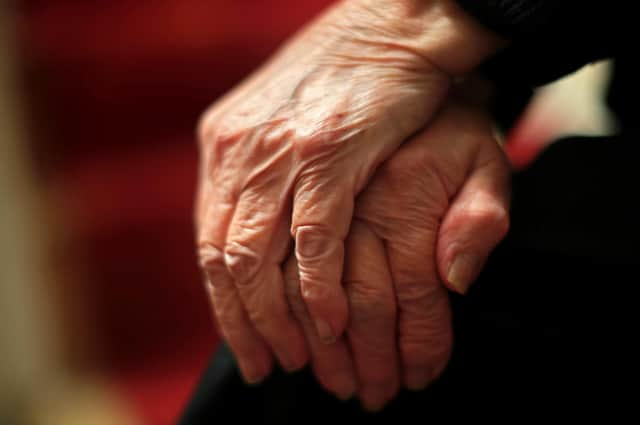NHS trusts ‘miss targets over formal dementia diagnosis’


NHS England guidance gives a target for two-thirds of people suspected of having dementia to be officially diagnosed with the condition.
But data from the Office for Health Improvement and Disparities shows just 53.6% of people thought to have dementia in the NHS Vale Of York CCG area were formally diagnosed in 2021 – based on an indicator that predicts the expected number of dementia cases in people aged 65 and over.
Advertisement
Hide AdAdvertisement
Hide AdIt meant the area recorded one of the lowest diagnosis rates, and fell far below NHS England’s target of 66.7%.
Nationally, 61.6% of predicted dementia cases were formally diagnosed last year – the lowest rate in five years of available data, and down from 67.4% in 2020.
The Office for Health Improvement and Disparities data also shows just 58.2% of people thought to have dementia in the NHS East Riding Of Yorkshire CCG area were formally diagnosed in 2021 .
Zena Aldridge, from Dementia UK, said a lack of funding has led to “patchy” diagnosis rates and that Covid-19 had an even greater impact, with face-to-face GP appointments reduced and memory assessment services scaled back or closed.
Advertisement
Hide AdAdvertisement
Hide AdGavin Terry, head of policy at Alzheimer’s Society, said: “Covid has had a devastating impact on people affected by dementia and we estimate there are around 35,000 people living with dementia, who would have been diagnosed had the pandemic not happened.
“A timely dementia diagnosis is essential to getting vital health treatment as well as emotional and practical support.”
The Department for Health and Social Care allocated £17 million in funding to NHS England and Improvement last year to addressing falling dementia diagnosis rates and provide greater pre and post-diagnostic support to dementia sufferers and their carers.
A spokesperson said the Government recognises the impact Covid-19 has had on dementia diagnosis rates, but added it has “set out a blueprint to address backlogs built up during the pandemic and tackle long waits with a massive expansion in capacity for tests, checks and treatments”.